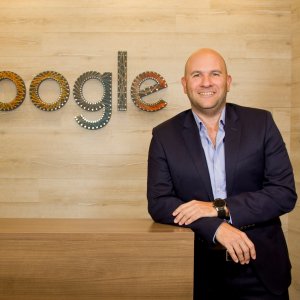Understanding Leads To Innovation

STORY INLINE POST
Q: How does Ironbit’s offering fit in the Mexican business ecosystem?
A: Ironbit has been a pioneer in different technology niches. We built the first mobile applications in Mexico in 2007, even before the appearance of the first Android and iPhone units. The idea was to create new communication channels for businesses and markets using new avenues such as the mobile phone. One of our greatest differentiators has always been innovation, not from a technology-adoption standpoint but in relation to helping our clients to adopt this technology and understand how it could impact their business.
Company directors constantly monitor technology trends and are willing to adopt things like AI, virtual and augmented reality because they see there is an advantage in using these or because technology leaders are developing products. Whenever we receive a request from a company to provide a specific technology, our work is not to provide the technology per se but to understand the problems that the client needs to solve. For us, it is extremely important to find the real problem of a company before implementing any type of technology. This is just the tip of the iceberg. Below that, there are many other elements that require our attention, which is why we work according to innovation models. We designed a model based on the best practices of different methodologies, such as the design thinking and design sprint models that are fairly popular. The models were adapted to the needs of the Latin American market and have been very helpful. We have delivered over 800 projects using these innovation model. This ensures that technology and the implementation of any automated process provide a real benefit and impact a business indicator.
Q: What role will mobile apps play in the future of businesses and how will they improve the interaction between businesses and consumers?
A: Mobile applications have become the communication hub for all technologies. They are the common denominator in all operating systems and a door for smartphones to use emerging technologies, such as AI. We are working to deliver the first solutions for Alexa using voice commands.
Companies are increasingly implementing AI solutions to increase the productivity of traditional processes. Banking institutions are implementing these solutions through virtual assistants to address client needs. Some might need the assistance of a call center, but in general this allows companies to optimize traditional processes. Also, with AI applications, companies are able to gather data, which is what clients are interested in. This data can help companies improve their product and services.
Q: What do businesses and the general population in Mexico need to understand about the digital transformation we are experiencing?
A: Today, any technology supplier believes that it participates in the digital transformation trend. However, digital transformation refers to how the core business of a company is transformed so it can become scalable. The only way to make a business scalable is through the digitalization of its core business, not of its communications or processes. Some consultancies say automating all processes within a company is digital transformation, while others say that improving the experience of the client also entails digital transformation. But our thesis is more focused on transforming the business itself.
We have had to develop significant communication strategies to share our vision. When we started developing mobile applications, around 15 percent of Mexicans had a smartphone. Today, more than 80 percent of the population has one. People access internet more through a cellphone rather than through a computer, so our main challenge was to convince decision-makers to have their own mobile applications. We then focused on cloud computing, in which we were pioneers. Today, the topic of digital transformation has become easier because of the great success cases we have seen and the fear of disappearing that exists among traditional companies. This makes decision-makers more willing to listen to us. The complex factor for companies is to discern what type of solution they need from a wide portfolio of available options in the market.
Q: What role does the end consumer play in Ironbit’s development process?
A: Most of the applications we make are focused on the final client. Our innovation model considers the successful adoption of the platform by the user. Decision-makers usually want to decide the design of the application but do not consider the final user or if it solves the original problem. One of the topics to consider is the application’s function and whether it is user friendly. If an application does not have a good user experience, businesses will lose users. We are immersed in an economy of experiences. A great product with a great experience is bound to become the best product.
Our quality policy is to always exceed our clients’ expectations. To do this, we need to know our client and their attributes. Since our solutions are tailor-made, we need to understand our client and the expected final user. We emulate their response to our platforms and thus create a true digital experience.
Q: What opportunities does Ironbit perceive in the wearables segment?
A: We continuously adopt technologies and are always looking for new ways to improve. When it comes to innovation processes, only 2 percent generate disruption while the rest are only improvements to existing solutions.
A few years ago, we decided to bet on the new technology wave of IoT and we started to design a medical device that could measure blood pressure, which was just released by another company. Our experience with this innovation was that it was a complicated niche not only in terms of technology but also because of the regulations for the health sector. We decided to use this experience to create a wearable that uses IoT and AI and that allows you to control your phone with body movement. These are called natural user interfaces and will change our approach to technology.
Smartphones as we know them are bound to disappear and everything will be through wearables and body movement. Because of this, our bet was and continues to be on body movement to control a computer without needing a camera or voice commands. This particular project became a spinoff company that is now based in San Francisco and is focused on selling software related to body movement recognition.
Ironbit is a Mexican technology company founded in 2005 that focuses on the development of mobile applications. It is a pioneer in the development of smart TVs, Kinect, augmented and virtual reality








 By Gabriela Mastache | Senior Journalist and Industry Analyst -
Tue, 06/02/2020 - 18:07
By Gabriela Mastache | Senior Journalist and Industry Analyst -
Tue, 06/02/2020 - 18:07














